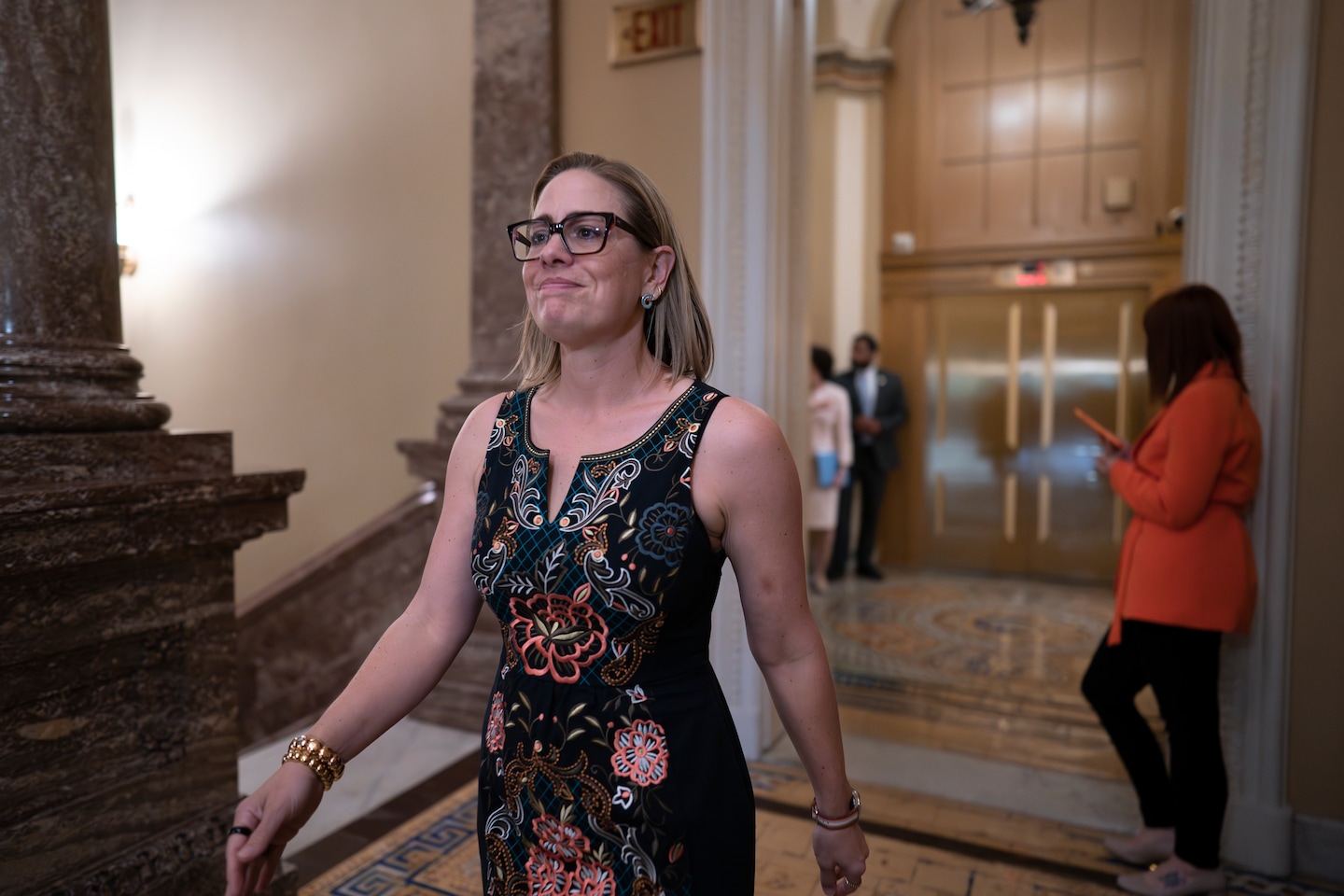Sinema cites a bill targeting leaders of failed banks after criticism of Wall Street relations.

Her staunch support of the aisle-crossing deal fueled her divorce from Democrats last year and is complicating her potential path to re-election in one of the most closely watched Senate campaigns.
Sinema explained to the Associated Press her role in facilitating a deal between Senator Sherrod Brown (D-Ohio), the chair of the committee, and South Carolina Senator Tim Scott, the top Republican.
“My job was to help them understand the differences and find commonalities between them,” said Sinema.
A spokesperson for Brown and Scott said they worked with Sinema and other committee members to integrate their ideas.
The action follows the bankruptcies of Signature Bank and First Republic Bank, following Silicon Valley Bank’s, the second-largest bank failure in U.S. history this year.
A Senate bill would make it easier for regulators to recover compensation from defaulting bank executives. Sinema said it pushed for the inclusion of a provision requiring the Fed to report on efforts to improve bank oversight.
After the Silicon Valley bank collapse, Cinema was heated for supporting a 2018 bill that would ease the “stress test” requirements for banks with between $100 billion and $250 billion in assets, including Silicon Valley. The Fed blamed the collapse on poor management, diluted regulation and lax oversight of its employees.
Sinema said her support for increased powers by regulators was not a response to pressure on her. Critics, she said, “don’t serve on relevant committees, don’t understand the problems, and don’t get involved in the day-to-day work of ensuring a healthy and strong economic and financial system for our country.” .”
She said the Fed retained the mandate to properly regulate banks even after the rollback and that the central bank did not act urgently, even though there were indications that Silicon Valley was in trouble.
“The mistake they’ve made in the past is to operate at the pace of an existing business, not the pace of a new business,” she said.
Known for minimizing contact with journalists, Cinema strengthened its relationship with the press this year as it pondered its own political future. She is raising money for her potential re-election campaign, but has not announced whether she will run, saying she is focusing on her own work in Congress.
She will have a challenging and unpredictable three-way race.
Rep. Ruben Gallego, a Marine Corps veteran and film critic, is the only major Democrat running for the Senate. Pinal County Sheriff Mark Lamb is the only major Republican nominee, but former television anchor Kari Lake is considering running.
Arizona will play a key role in the Democratic effort to retain a senatorial majority, given that the 2024 overall election map favors Republicans.
Sinema also cited it as a possible candidate for a bipartisan White House “union ticket” being considered by No Labels, a group seeking voting rights in multiple states to run an alternate candidate “if the two parties choose an unfairly divisive presidential candidate.” It has been.
On Thursday, Sinema rejected the idea.
“I’m not running for president,” she said.
#Sinema #cites #bill #targeting #leaders #failed #banks #criticism #Wall #Street #relations





